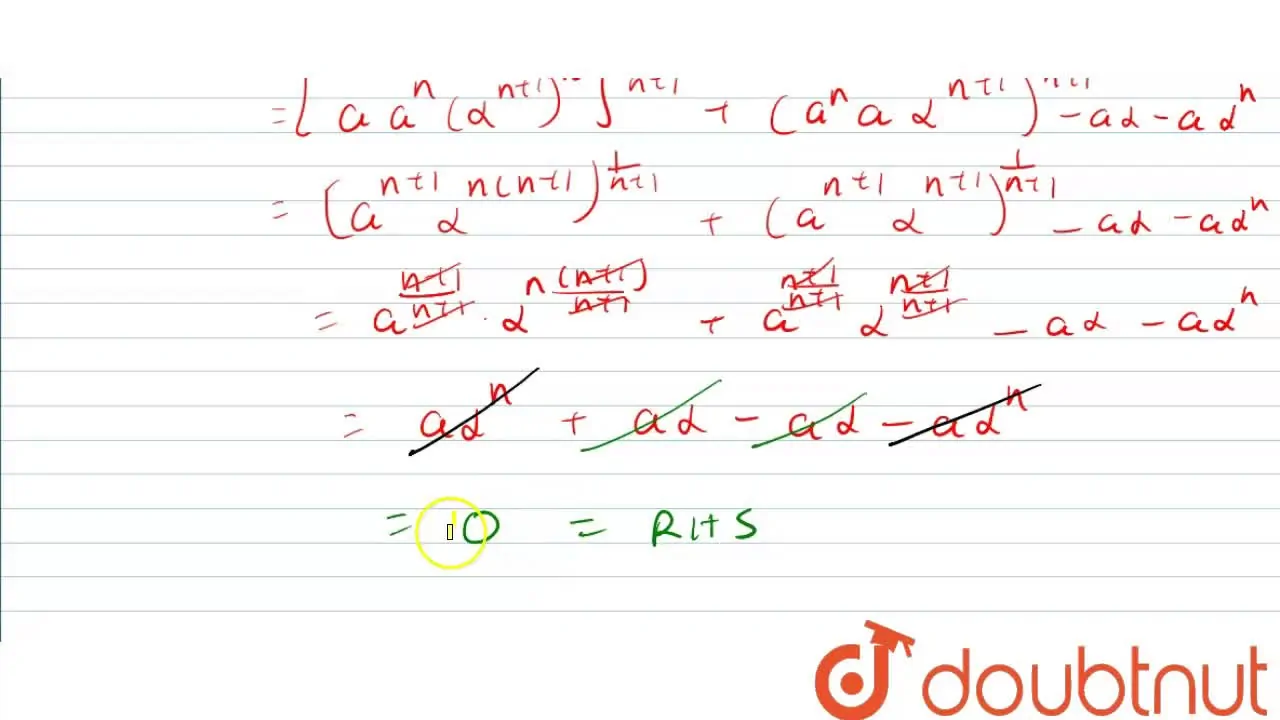If one root of the quadratic equation ax2+bx+c=0 is equal to the nth power of the other root , then show that (acn)1n+1+(anc)1n+1+b=0
Step by step video & image solution for If one root of the quadratic equation ax^(2) + bx + c = 0 is equal to the n^(th) power of the other root , then show that (ac^(n))^(1/(n+1)) + (a^(n)c)^(1/(n+1))+b = 0 by Maths experts to help you in doubts & scoring excellent marks in Class 11 exams.
Related Playlists
- BOOK - ICSECHAPTER - MODEL TEST PAPER -5EXERCISE - SECTION -B10videos
MODEL TEST PAPER -5
- BOOK - ICSECHAPTER - MODEL TEST PAPER -5EXERCISE - SECTION -C10videos
MODEL TEST PAPER -5
- BOOK - ICSECHAPTER - MODEL TEST PAPER -4EXERCISE - SECTION -C10videos
MODEL TEST PAPER -4
- BOOK - ICSECHAPTER - MODEL TEST PAPER 14 EXERCISE - SECTION C10videos
MODEL TEST PAPER 14
Similar Questions
If one root of the equation ax2+bx+c=0 is equal to the nth power of the other, then (acn)1n+1+(anc)1n+1+b is equal to
View SolutionIf the ratio of the roots of the equation ax2+bx+c=0 is m: n then
View SolutionIf the roots of the equation ax2+bx+c=0 are in the ratio m:n then
View SolutionIf one root is the nth power of the other root of the equation x2−ax+b=0 then bnn+1+b1n+1=
View SolutionFind the condition that one root of the quadratic equation ax2+bx+c=0 shall be n times the other, where n is positive integer.
View SolutionIf the ratio of the roots of the equation ax2+bx+c=0 is equal to ratio of roots of the equation x2+x+1=0 then a,b,c are in
View Solutionif α&βare the roots of the quadratic equation ax2+bx+c=0, then the quadratic equation ax2−bx(x−1)+c(x−1)2=0 has roots
View SolutionIn quadratic equation ax2+bx+c=0, if discriminant D=b2−4ac, then roots of quadratic equation are:
View SolutionIf α is a real root of the quadratic equation ax2+bx+c=0andβ ils a real root of −ax2+bx+c=0, then show that there is a root γ of equation (a/2)x2+bx+c=0 whilch lies between aandβ.
View SolutionIf αandβ are roots of the quadratic equation ax2+bx+c=0 and a+b+c>0,a−b+c>0&c<0,then[α]+[β] is equal to (where [.] denotes the greatest integer function) (a)10 (b) −3 (c) −1 (d) 0
View Solution


